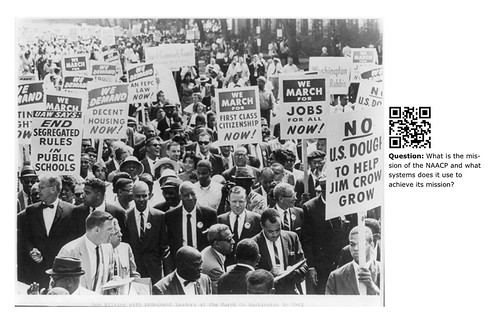Vice President Kamala Harris to address NAACP convention in Boston this month
NAACP #NAACP

They’re all welcome. The NAACP was founded in 1909 by an alliance of Black and white leaders, and its events, conferences, protests, and conventions have always been inclusive.
“Sometimes people hear the NAACP, and they think, ‘Oh, that’s not for me,’ ” said Tanisha Sullivan, president of the Boston NAACP branch. “We’re doing everything we can to make sure that this convention is the most accessible convention that the NAACP has ever held.”
Get Trendlines
A business newsletter from Globe Columnist Larry Edelman covering the trends shaping business and the economy in Boston and beyond.
How so?
The NAACP has introduced The Hub, three days of events (July 28 – July 30) at the Boston Convention & Exhibition Center that are free and open to the public. Think of it as a showcase of Black culture across arts, sports, entertainment, and technology.
Be entertained by the disc jockey known as DJ Jazzy Jeff, but also inspired by talks on wealth-building and wellness. Support Black-owned brands or drop by a career summit to connect with Massachusetts companies that are hiring.
For conventioneers, one of the highlights will be a July 30 panel that brings together New England Patriots owner Robert Kraft, Harvard professor Henry Louis Gates Jr., and rapper Meek Mill. The conversation, moderated by Fox Sports analyst Joy Taylor, will focus on racism, antisemitism, and how Black and Jewish communities can work together to fight the rise of hate.
Kraft and Mill have formed an unlikely friendship. In 2018, the billionaire visited Mill — whose real name is Robert Rihmeek Williams — in a Pennsylvania prison where he was serving a controversial two- to four-year sentence for probation violations considered so minor that even his probation officer recommended that Mill not be sent back to prison.
Kraft spoke to reporters after his visit about the need for criminal justice reform. “This guy is a great guy, and he shouldn’t be here,” Kraft said.
Mill was released after a few months and launched Reform Alliance, a nonprofit dedicated to rethinking probation and parole by changing laws and culture. Kraft sits on the board.
In turn, Mill has supported Kraft’s campaign to stamp out hate and violent rhetoric aimed at Jewish people through his Foundation to Combat Antisemitism. The two traveled to Poland in April to attend the March of the Living to honor victims and survivors of the Holocaust.
“The inequities the Black community faces every day are ones that I’ve lived in real life and have witnessed firsthand,” Mill, cochair of Reform Alliance, said in a statement. “Ever since that pivotal moment in my life when I was faced with injustice and was proud to fight back, I promised to tackle racial inequality and hate of all kinds so people can be treated as they are and not how they are perceived. I am proud to join this conversation to continue that dialogue.”
It has been four decades since the national NAACP convention last came to our city. The 2023 convention — which is expected to draw between 7,000 and 10,000 attendees — almost went to Nashville instead of returning here.
Conventions of this size are planned years in advance, and it was former Boston chapter president Michael Curry and then-Mayor Marty Walsh who turned on the charm. After the national chapter balked at the high cost of hotel rooms in Boston, Walsh offered to set up a fund to offset the expense.
The convention originally was scheduled to come in the summer of 2020, but the pandemic upended those plans. As for that fund, the region’s tourism bureau, Meet Boston, has agreed to pick up the tab. A spokesman said the bureau is setting aside at least $350,000 to keep room rates at about $209 a night, a savings of roughly $30 to $85 a night.
The state has also kicked in $2 million out of its supplementary budget passed in March. That money, which goes to the Boston NAACP branch, helps underwrite free events to the public and community outreach during the convention.
All told, the NAACP has raised nearly $4 million including from corporate sponsors. Among them: insurer MassMutual, financial services giant State Street, life sciences company Sanofi, and private equity firm Bain Capital, as well as the Greater Boston Building Trades Unions.
The fundraising continues, and another $2 million is being raised for the convention and work of the NAACP. A couple of weeks ago, Mayor Michelle Wu was on a Zoom call with the business community explaining how companies can support the convention.
Beyond money, the NAACP is encouraging companies and organizations to provide volunteers for the convention. The building trades unions, for example, are dispatching hundreds of volunteers. The two groups have had a longstanding partnership.
The convention is a chance to show how much progress Boston has made since the 1970s when the violence of busing and school desegregation seemed to define us.
We still have a way to go, but let’s remind the world how far we’ve come. Consider what’s transpired in the past two decades: We’ve had a Black governor (Deval Patrick) and a Black mayor of Boston (Kim Janey). Black women hold some of the region’s most important roles: Ayanna Pressley is in Congress, Andrea Campbell serves as attorney general, Susan Collins is president of the Boston Federal Reserve Bank, Dr. Paula Johnson is Wellesley College’s president, and Claudine Gay is Harvard’s new president.
Across nonprofits and businesses, there’s a growing number of Black CEOs: Lee Pelton at the Boston Foundation, Corey Thomas at tech company Rapid7, Cain Hayes at insurer Point32Health, Dr. Yvonne Greenstreet at Alnylam Pharmaceuticals.
But to ensure that hosting the NAACP convention has a lasting impact — not just on the out-of-town delegates but also the communities here — we all need to show up.
Shirley Leung is a Business columnist. She can be reached at shirley.leung@globe.com.